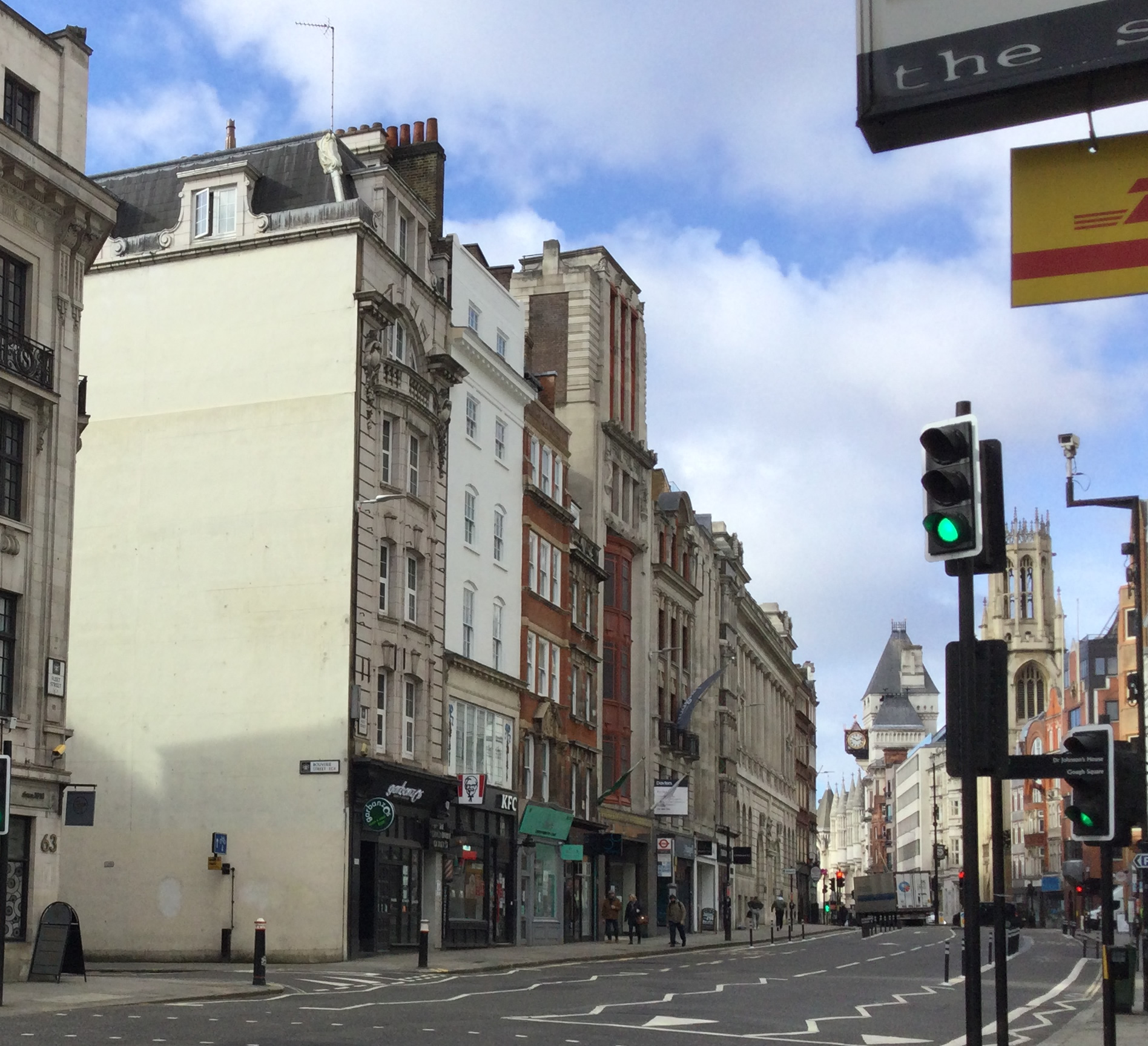
Number 62 Fleet Street
If you had been standing on the pavement
under the blank wall at the entrance to Bouvereie Street two hundred years
ago, you would
not have been in the open air as you are today. Instead, you would have
been in the printing office of Richard Carlile at number 62 Fleet Street.
you would
not have been in the open air as you are today. Instead, you would have
been in the printing office of Richard Carlile at number 62 Fleet Street.
The printing office and the building above it was pulled down around 1850
in order to widen the entrance to Bouverie Street, which at that time
was only 8 ft wide wide. The ground floor was a shop for selling "The
Republican" and other radical publications, such as the works of Thomas
Paine. It might also have had the heavy printing press in it. The first
floor would have probably been for the compositor picking out the metal
type to make the words to be printed, and putting them into formes for
printing. Finishing work on books would probably have been done here too.
On or both of the two upper floors would have been the family living quarters.
The
printing office was run by Richard Carlile, and he had founded his newspaper,
called "The Republican" in 1817. He was a radical, who thought that big
changes were needed in society. He thought it was unjust that only people
who owned property could vote in elections. And hethought that women should
be allowed to own property, to vote and to stand for Parliament. These
things are now part of the law of England, and everybody accepts them.
But at that time, they were not, and the people in power did not think
that these ideas should be publicly expressed.
So the authorities tried to stop his newspaper. They started by putting
a tax on newspapers. "The Republican" sold for one penny, and the tax
was four pence a copy, so the price of "The Republican" had to go up to
five pence in order to pay the tax. This meant that many people who had
started buying it could no longer do so. The Government hoped that the
newspaper would close down, but it didn't. People started sharing copies
ad passing it round.
So Richard Carlile was prosecuted for "seditious libel" which meant that
he had criticised the Church of England, and the system of tithes, a tax
on property paid to the Church. He was found guilty and sent to prison
several times.
It is to the courage of people such as Richard Carlile that we owe the
freedom of the press, and our own personal freedom of expression, which
nowadays we tend to take for granted. But we would not have it if they
had not fought and suffered for it
